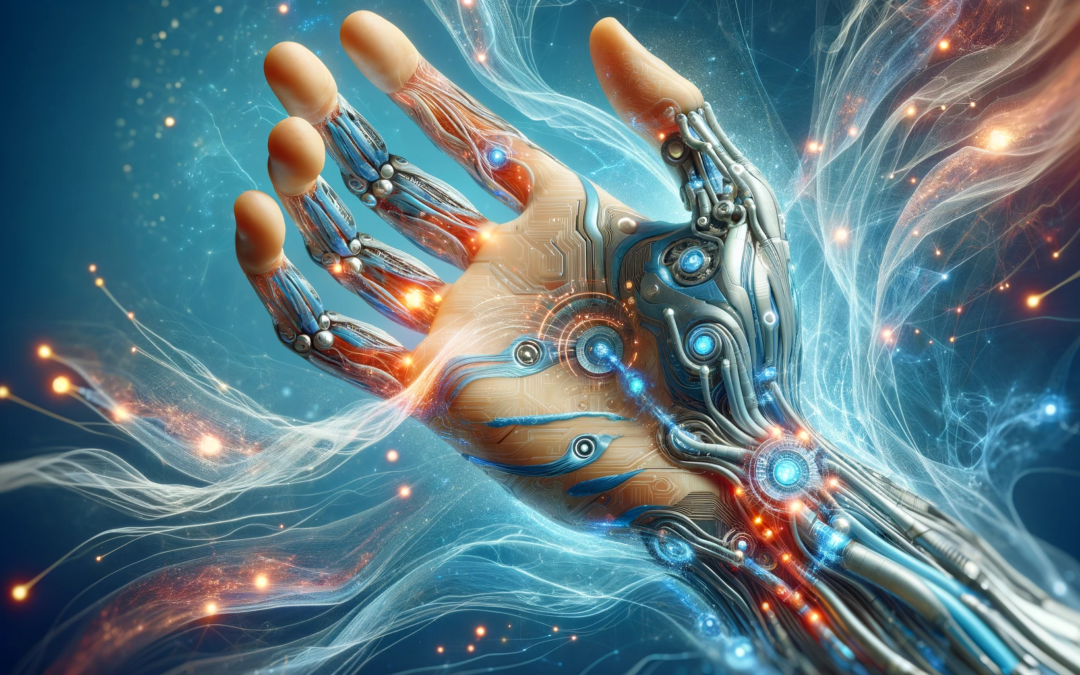As we stand at the threshold of a new era in scientific inquiry, we are compelled to confront the risks and uncertainties that come with playing god. The pursuit of innovation, driven by human curiosity and the quest for progress, has led us to the brink of a new frontier: directed evolution. This bold endeavor seeks to manipulate and shape the very fabric of life itself, leaving us to ponder the implications of such an endeavor.
The Promise and Risks of Directed Evolution
The notion of directed evolution is straightforward: by harnessing the power of genetic engineering, we aim to accelerate the evolutionary process, guiding the trajectory of species adaptation to suit our own ends. The promise is enticing: the eradication of diseases, the enhancement of crop yields, and the creation of novel biological systems tailored to our needs. Yet, as we embark on this grand experiment, we must acknowledge the inherent risks that accompany such a venture.
The most pressing concern is the potential for unforeseen consequences. By tampering with the fundamental building blocks of life, we risk creating novel entities that defy our understanding of the natural world. The introduction of genetically modified organisms into the environment, without adequate safeguards, could have catastrophic repercussions on ecosystems and the delicate balance of biodiversity. The butterfly effect, a phenomenon where small changes lead to unpredictable outcomes, becomes a disturbing reality in the realm of directed evolution.
Moreover, the perturbation of natural selection introduces a new variable, rendering our understanding of evolution uncertain. The evolutionary process, once thought to be a gradual, incremental progression, now becomes malleable and susceptible to manipulation. This loss of predictability raises questions about the long-term viability of our actions, as the unforeseen consequences of our meddling threaten to destabilize the very fabric of the natural world.
The Hubris of Human Ingenuity and the Ethical Implications
Furthermore, the hubris of human ingenuity, which drives this endeavor, is tempered by the realization that we are still mere mortals, subject to the whims of fate. Our understanding of the intricate web of life is limited, and our attempts to control and direct evolution betray a fundamental ignorance of the complexities involved. The arrogance of assuming we can orchestrate the evolution of life is a recipe for disaster, as we risk disrupting the intricate balance of ecosystems and ignoring the delicate interplay between species.
Beyond the scientific uncertainties, the social and ethical implications of directed evolution must be addressed. Who shall be the architects of this new world, guiding the course of evolution? Shall it be corporations seeking to profit from their creations, or governments eager to exert control over the direction of life? The influence of vested interests on the development and deployment of directed evolution could have far-reaching consequences, shaping the course of human history in ways both subtle and profound.
Navigating the Uncharted Territory
As we navigate the uncharted territory of directed evolution, we are reminded of the Sisyphean task that lies before us. We are but mere mortals, attempting to defy the fundamental principles of nature and the very notion of life itself. The weight of our actions is crushing, as we stand at the precipice of a new era, poised to reshape the very fabric of existence.
As we contemplate the risks and uncertainties of directed evolution, we are forced to confront the limitations of our knowledge and the hubris of our ambition. We must acknowledge the potential consequences of our actions and temper our enthusiasm with a sense of responsibility and humility. The pursuit of innovation must be tempered by an unwavering commitment to the well-being of the planet and the integrity of life itself.
As we embark on this grand experiment, we must heed the wise words of the great scientist, Rachel Carson: “The species is the only species that deliberately destroys its own habitats and, by extension, its own future.” In the face of such uncertainty, we must strive to be mindful of the delicate balance of life and the sacred trust we hold in the responsibility of shaping the evolution of the natural world.
In the end, the pursuit of directed evolution is a testament to humanity’s boundless potential and our eternal quest for knowledge. As we gaze into the abyss of uncertainty, we are compelled to confront the risks and uncertainties that come with playing god. The outcome of this grand experiment is far from certain, yet it is in this act of introspection and self-awareness that we may find the wisdom to navigate the uncharted territory of directed evolution and emerge with a deeper understanding of the intricate dance between life, humanity, and the universe.










